Harness the Future of Marketing
AI Marketing Solutions That Drive Smarter, Faster Growth
AI Marketing Solutions That Drive Smarter, Faster Growth

Unlock the potential of AI-driven strategies. Start scaling your business intelligently—schedule a consultation today!
What's your thought?

Awesome! 5X begins here!
Please enter your details

"That’s disappointing, but understood."
Feel free to reach out when you're ready to grow.
Trusted by 1,000+ Brands as their preferred Digital Marketing agency in Mumbai. Chosen for One Reason: Results.










Struggling to Keep Up in a Data-Driven World?
Why Traditional Marketing Falls Short Today
In a world of constant digital transformation, relying solely on conventional marketing strategies puts your business at risk of falling behind. Manual processes lack precision, leading to wasted ad budgets and suboptimal targeting. You might be asking: How can I compete in a market where data, speed, and personalization rule?
Without AI marketing, businesses miss opportunities for hyper-personalized campaigns, faster decision-making, and actionable insights from vast data sets. The result? Decreased ROI, lower customer engagement, and missed revenue potential.
Syspree bridges the gap by offering AI Marketing solutions that automate, optimize, and amplify every aspect of your digital outreach.
Key Challenges Businesses Face
Inefficient Targeting
Missed opportunities due to inaccurate audience segmentation.
Slow Decision-Making
Campaign adjustments that take weeks, not minutes.
Data Overload
Inability to extract insights from massive datasets.
High Costs
Overspending on marketing channels without measurable results.
Revolutionize Your Campaigns with AI Precision
Smarter Marketing, Guaranteed Results
With Syspree’s CORE Framework—Consult, Optimize, Reinforce, Excel—we integrate cutting-edge AI technologies to transform your marketing efforts. From AI-powered audience segmentation to predictive analytics and automated ad optimization, our solutions deliver unparalleled ROI.

Consult
In-depth audits and AI-driven market analysis tailored to your needs.

Optimize
Data-backed refinement of campaigns to enhance precision and performance.

Reinforce
Continuous learning algorithms that adapt and improve strategies.

Excel
Scalable systems designed for consistent, exponential growth.

Consult
In-depth audits and AI-driven market analysis tailored to your needs.

Optimize
Data-backed refinement of campaigns to enhance precision and performance.

Reinforce
Continuous learning algorithms that adapt and improve strategies.

Excel
Scalable systems designed for consistent, exponential growth.

Optimize
Data-backed refinement of campaigns to enhance precision and performance.

Consult
In-depth audits and AI-driven market analysis tailored to your needs.

Reinforce
Continuous learning algorithms that adapt and improve strategies.

Excel
Scalable systems designed for consistent, exponential growth.
Testimonials
What Our Clients Achieved with Us



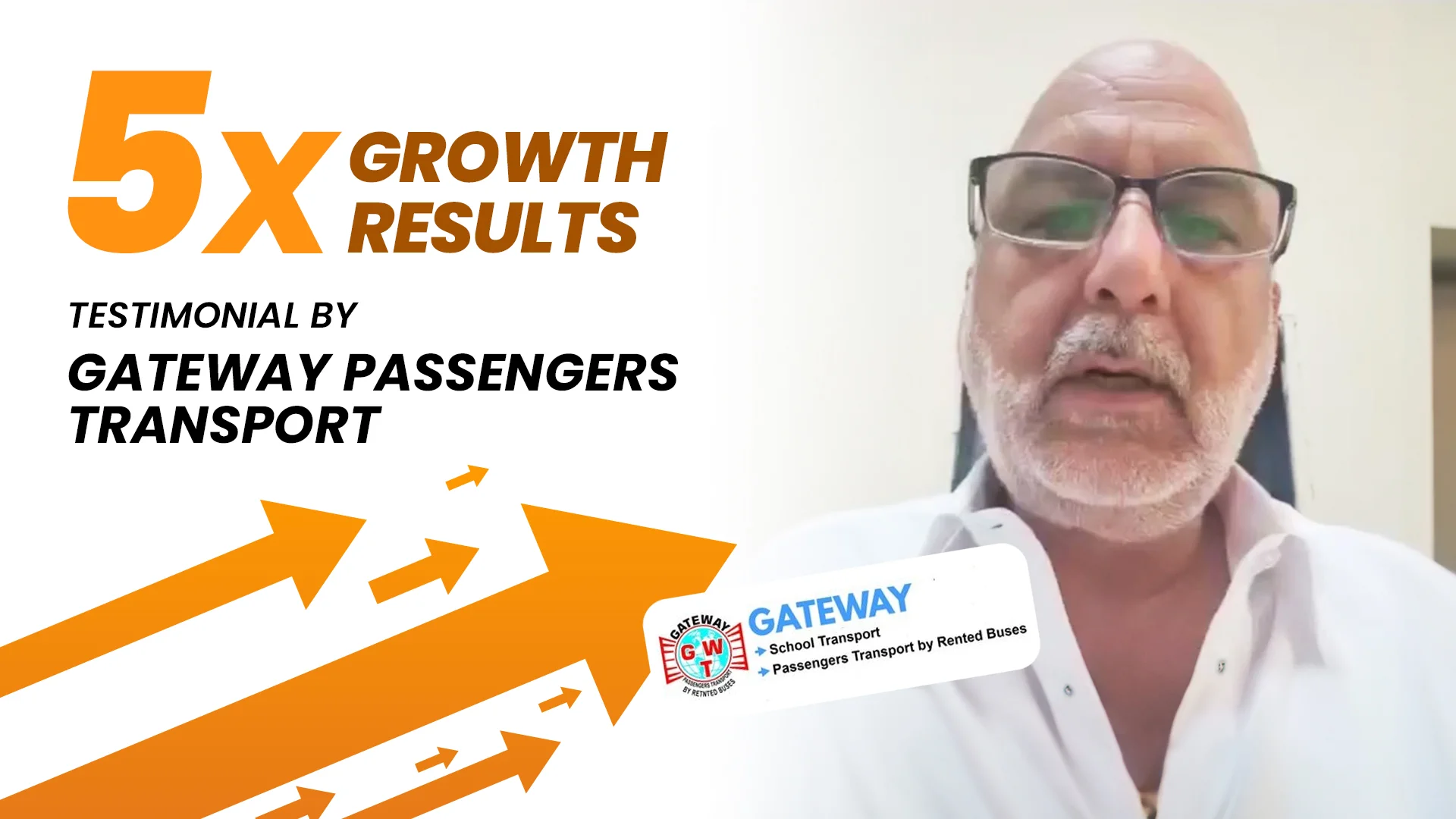

Our Capabilities
Comprehensive AI Marketing Solutions
Websites That Deliver Real Results
Success Stories That Inspire Confidence
From doubling conversions to reducing bounce rates, Syspree’s websites consistently deliver results. Check out our case studies for in-depth stories of businesses like yours achieving success.
Tailored Designs for Your Unique Needs
Solutions for Every Industry
Our Global Presence
Countries We are Present In

Fueling Growth Through Data Excellence
Proven Success in Numbers
CASE STUDIES
Proven Results Across Industries
Explore how Syspree has helped businesses across industries achieve measurable growth with tailored digital marketing and web development strategies. From e-commerce to tech startups, our custom solutions deliver proven results that drive revenue, improve customer acquisition, and enhance brand visibility
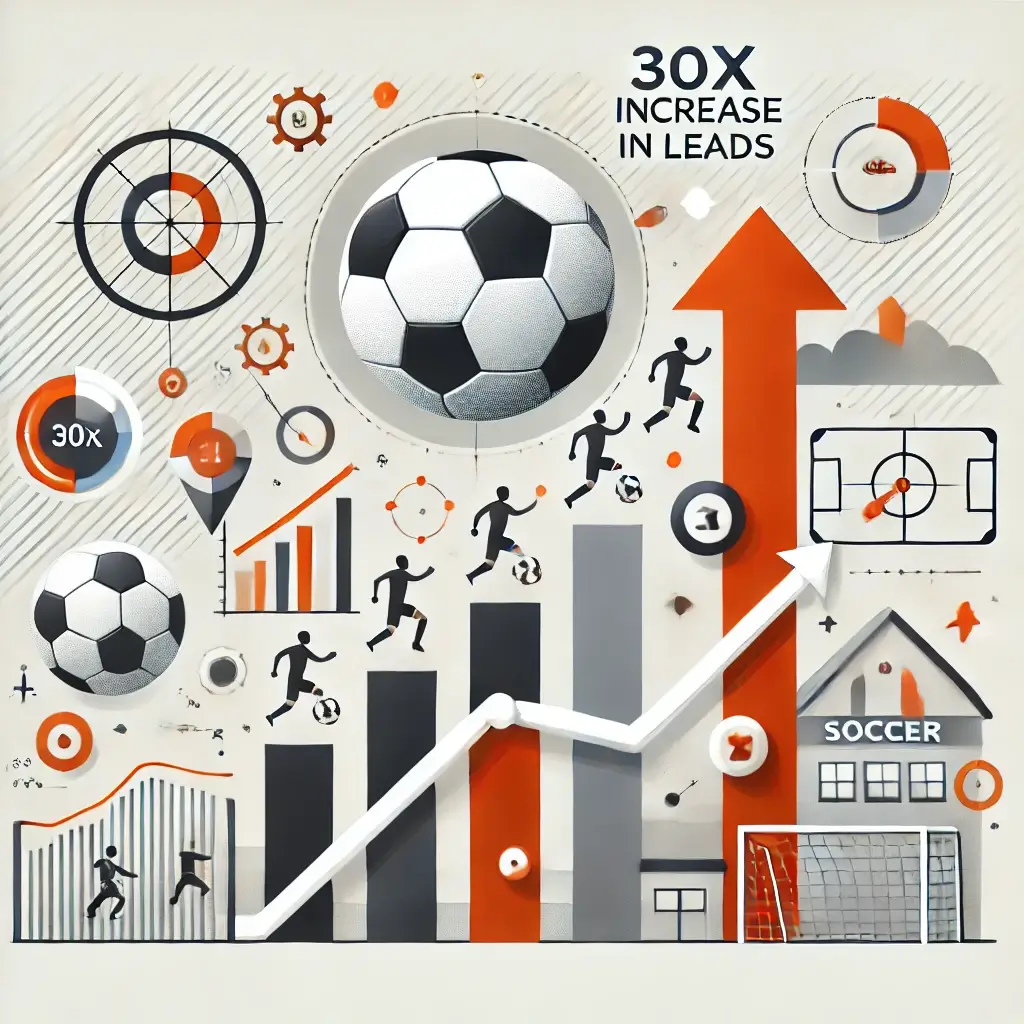
CASE STUDIES
30 Times Surge in Leads within a year
Sports Coaching Company

CASE STUDIES
Astounding 800% Increase in FMCG Distributor’s Web Traffic in Just 13 Months!
FMCG Distributors
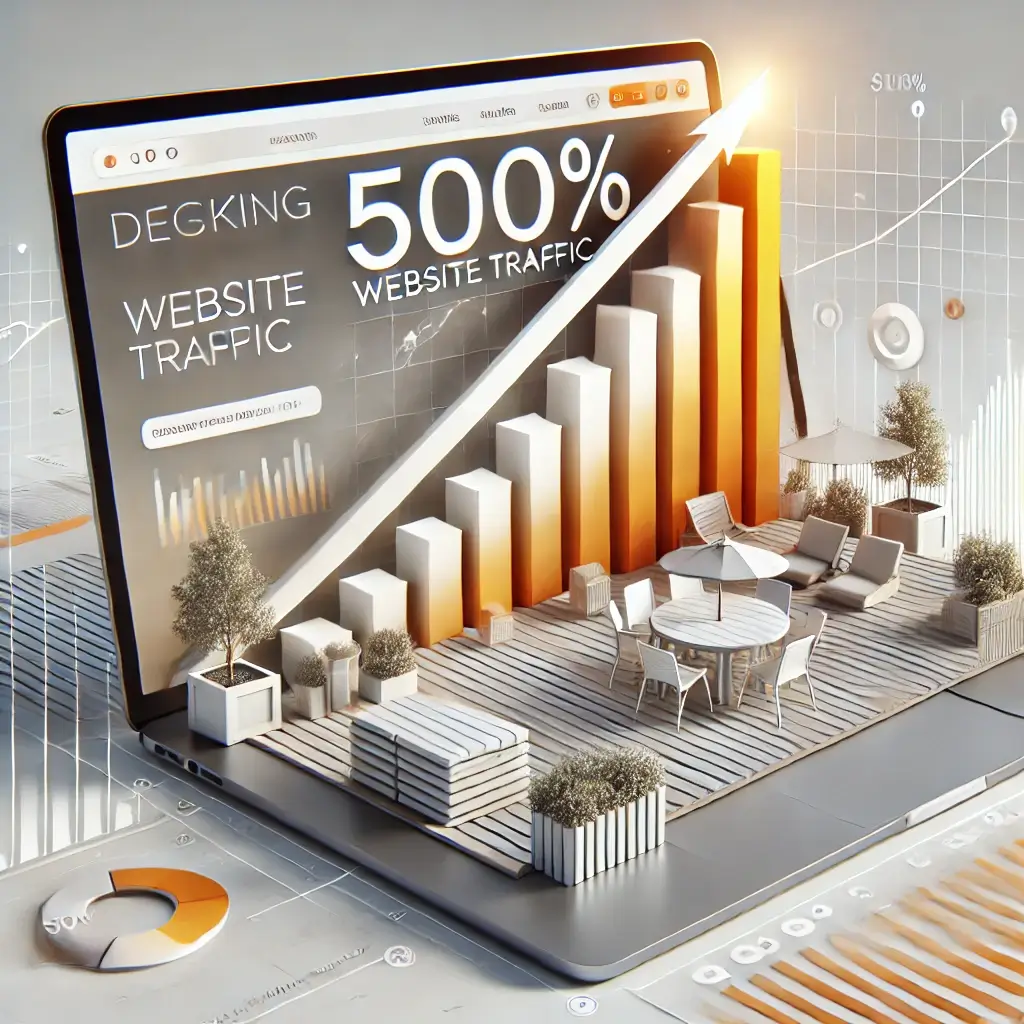
CASE STUDIES
500% Traffic boost in only 6 months
DECKING AND PATIO COMPANY
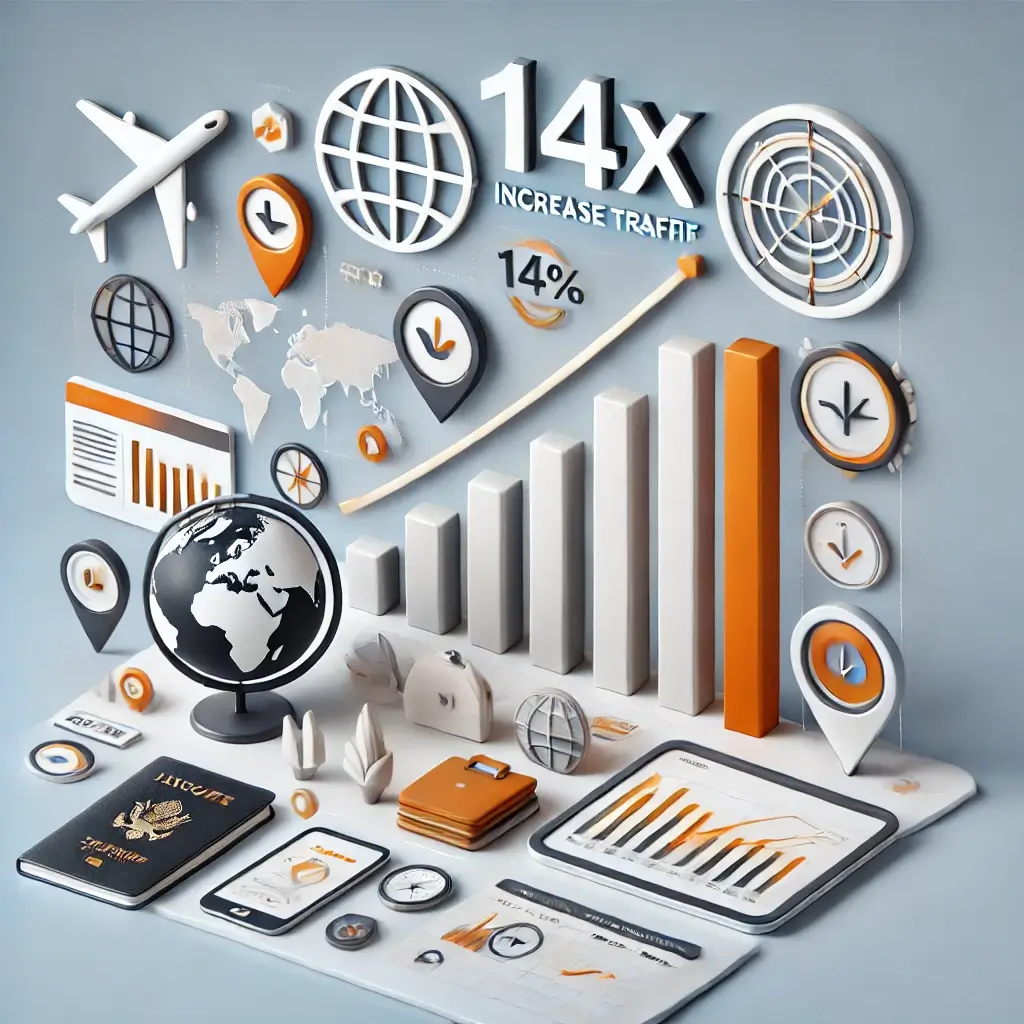
CASE STUDIES
Improve Your Traffic by 1400% In Just 2 months!
Immigration Company

CASE STUDIES
900% Traffic Surge in Just 1.5 Years
Holistic Lifestyle
e-commerce
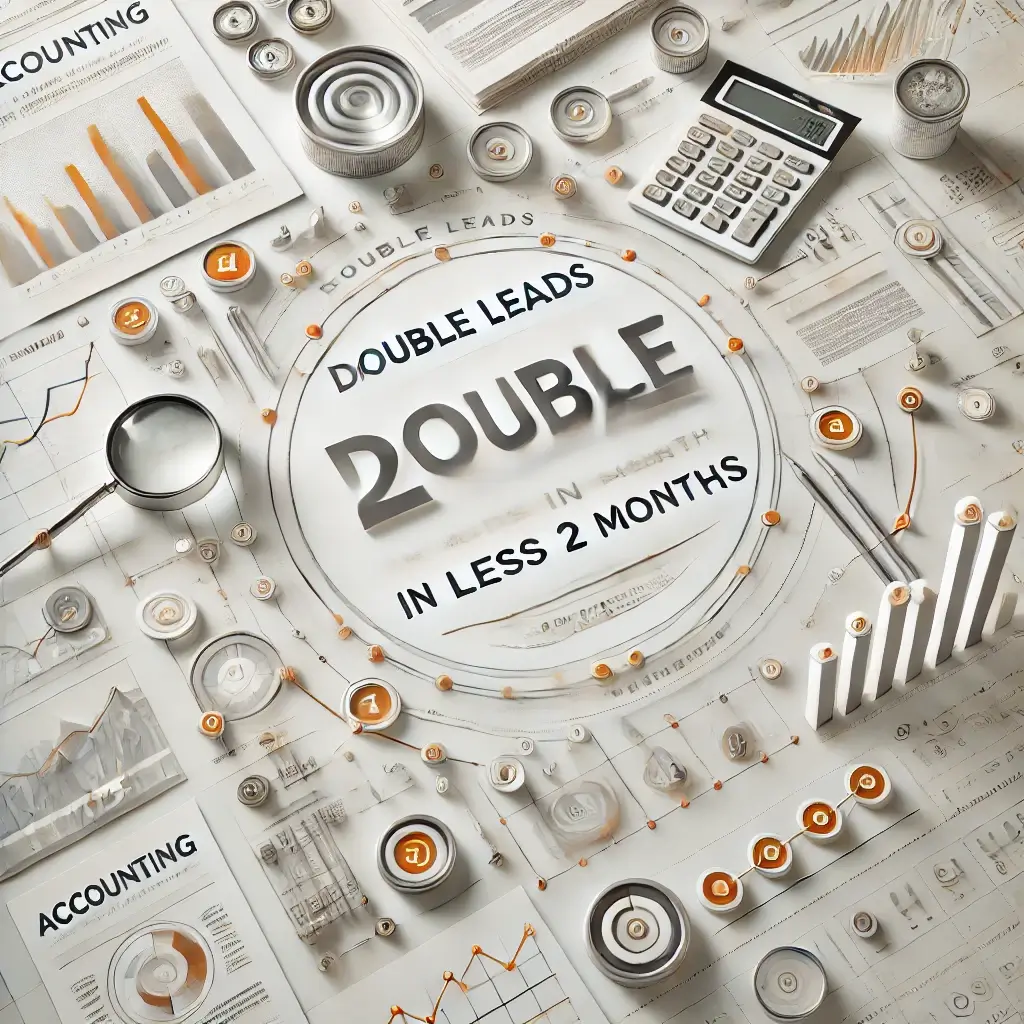
CASE STUDIES
Double Leads for Accounting company in just 2 months
Accountants and corporate services
OUR LEADERSHIP


Our leadership ensures Syspree delivers innovation and measurable results through expert website design and development strategies.
OUR TEAM























Our skilled team combines creativity with precision, building websites that deliver exceptional user experiences and business results
OUR EXPERTISE, YOUR KNOWLEDGE
Blogs, Podcasts,Vlogs

Transforming Campaigns with AI: Syspree’s Expertise
We spread the KNOWLEDGE
Blogs, Podcasts,Vlogs
- All Posts
- Abu Dhabi
- Adelaide
- Africa
- Ahmedabad
- AI & Innovation
- AI & Personalization
- AI & Workforce Strategy
- AI Automation
- AI in E-commerce
- AI in Technology
- AI in Technology Business
- AI Innovation in E-commerce
- AI Marketing
- AI Strategy
- AI Strategy in E-commerce
- AI Success Stories
- AI Success Stories in E-commerce
- AI vs Human Strategy
- Ajman
- Analytics & CRO
- Artificial Intelligence
- Bahrain
- Belgium
- Bengaluru
- Birmingham
- Blogs
- Branding and Marketing Services blog
- Brazil
- Business Growth
- Canada
- Canberra
- chennai
- Chicago
- Consulting
- Consulting Business Growth
- Consulting Growth Stories
- Consulting Lead Generation
- Consulting Marketing
- Consulting Strategy
- Content Marketing
- Corporate Services
- Corporate Services Growth
- Custom Software
- Customer Support
- Cyber Security
- Data Management
- data privacy compliance
- Data Protection
- data protection strategies
- data security solutions
- Decking Business Digital Marketing
- Delhi
- Digital FnB Marketing
- Digital Marketing
- Digital marketing for Tech
- Digital Tourism Marketing
- E-commerce Consumer Behavior
- E-commerce Conversion Optimization
- E-commerce Digital Marketing
- E-commerce Growth Stories
- E-commerce IT Best Practices
- E-commerce IT Infrastructure
- E-commerce IT Security
- E-commerce IT Strategy
- E-commerce IT Success Stories
- E-commerce Lead Generation
- E-commerce Marketing
- E-commerce Marketing Analytics
- E-commerce Marketing Strategy
- E-commerce Marketing Success Stories
- E-commerce Outsourcing
- E-commerce SEO
- E-commerce Social Media Marketing
- E-commerce Success Stories
- E-commerce UX/UI
- E-commerce Web Design
- E-commerce Web Design Strategy
- E-commerce Web Design Trends
- Ecommerce
- Edinburgh
- Education
- Education Analytics
- Education Business Growth
- Education Business Models
- Education Growth Stories
- Education Growth Strategies
- Education Lead Generation
- Education Marketing
- Education Strategy
- FnB Brand Strategy
- FnB Business Growth
- FnB Business Models
- FnB Industry Trends
- FnB Lead Generation
- FnB Marketing Analysis
- FnB Performance Metrics
- FnB Sales Channels
- FnB Success Stories
- France
- Fujairah
- Future of AI
- Future of AI in E-commerce
- Future of E-commerce IT
- Future of E-commerce Marketing
- Future of Education
- Future of FnB
- Future of Healthcare
- Future of Hospitality
- Future of Interior Design
- Future of Renovation
- Future of SaaS
- Future of Tech Business
- Future of Technology IT
- Future of Technology Marketing
- Future of Technology Outsourcing
- Future of Technology Web Design
- Future of Tourism
- Future of Travel Industry
- Ghana
- Goa
- Google Ads
- Graphic designing
- Guides
- Healthcare
- Healthcare Analytics
- Healthcare Business Growth
- Healthcare Business Models
- Healthcare Growth Stories
- Healthcare Growth Strategies
- Healthcare Lead Generation
- Healthcare Marketing
- Healthcare Strategy
- HongKong
- Hospitality Brand Management
- Hospitality Business Growth
- Hospitality Business Models
- Hospitality Consumer Behavior
- Hospitality Distribution Strategy
- Hospitality Expansion Stories
- Hospitality Industry Trends
- Hospitality Lead Generation
- Hospitality Performance Metrics
- Hospitality Pricing Strategy
- Hospitality Success Stories
- Hyderabad
- Information Technology
- Interior Design Growth Stories
- Interior Design Lead Generation
- Interior Design Marketing
- Interior Design Strategy
- Interior Design Trends
- Ireland
- IT Services
- Job Post
- Kenya
- Lead Generation for Tech
- Lead Generation for Training Companies
- Leeds
- Logo Designing services blog
- London
- Los Angeles
- Malaysia
- Marketing and Sales
- Marketing Strategy for Tech
- Marketing Technology
- Melbourne
- Miamai
- Miami
- Middle East
- Mumbai
- Nepal
- Netherland
- New York
- New Zealand
- Oman
- Others
- Outsourcing
- Paid advertising
- Pay Per Click
- Perth
- Philippines
- Podcasts
- Portugal
- Pune
- Qatar
- Ras-Al-Khaimah
- Renovation Business Growth
- Renovation Growth Stories
- Renovation Lead Generation
- Renovation Marketing
- Renovation Strategy
- Renovation Trends
- Roundup
- SaaS
- SaaS Business Growth
- SaaS Growth Stories
- SaaS Growth Strategies
- SaaS Lead Generation
- SaaS Metrics and Analytics
- SaaS Pricing Strategy
- SaaS Strategy
- SaaS Trends
- Scaling & Expansion in Training Businesses
- SEO
- SEO & Search Marketing
- SEO Strategies
- Sharjah
- social media marketing
- Social Media Marketing
- Spain
- Sri-Lanka
- Surat
- Switzerland
- Sydney
- Syria
- SySpree
- Tanzania
- Tech Business Growth
- Tech Business Models
- Tech Growth Frameworks
- Tech Growth Stories
- Tech Growth Strategy
- Tech lead Generation
- Tech Strategy & Innovation
- Technology
- Technology Digital Marketing
- Technology IT Best Practices
- Technology IT Infrastructure
- Technology IT Risk Management
- Technology IT Security
- Technology IT Strategy
- Technology IT Success Stories
- Technology IT Trends
- Technology Marketing Analytics
- Technology Marketing Strategy
- Technology Marketing Success Stories
- Technology Marketing Trends
- Technology Outsourcing
- Technology Outsourcing Analysis
- Technology Outsourcing Models
- Technology Outsourcing Risks
- Technology Outsourcing Strategy
- Technology Outsourcing Success Stories
- Technology Outsourcing Trends
- Technology SEO
- Technology Success Stories
- Technology UX/UI
- Technology Web Design
- Technology Web Design Strategy
- Technology Web Design Trends
- Thailand
- Tourism Business Growth
- Tourism Business Models
- Tourism Industry Insights
- Tourism Industry Trends
- Tourism Lead Generation
- Tourism Marketing Analysis
- Tourism Marketing Channels
- Tourism Pricing Strategy
- Tourism Success Stories
- Training Business Models & Industry Evolution
- Training Growth Stories
- Training Lead Generation
- Training Marketing
- Travel Analytics
- Travel Business Growth
- Travel Business Trends
- Travel Growth Stories
- Travel Lead Generation
- Travel Marketing
- Travel Marketing & Distribution
- Travel Strategy
- UAE
- UI/UX Design
- Vlogs
- Web Design
- Web Develipment
- Web Development
- White Label
Ready to Transform Your Marketing?
Contact us today to schedule a consultation. Discover how Syspree can transform your digital presence and help your business thrive.
FAQ
Your AI Marketing Questions Answered
AI Marketing, or Artificial Intelligence Marketing, refers to the use of artificial intelligence technologies to enhance and automate various aspects of digital marketing. This includes analyzing large datasets, optimizing campaigns in real-time, creating personalized customer experiences, and predicting future trends to ensure better outcomes.
As we move into 2026, businesses face a fast-paced, data-driven landscape where consumer expectations are constantly evolving. AI Marketing has become essential for businesses to stay competitive and thrive in this environment. Here’s why:
- Unparalleled Data Analysis and Insights
In 2026, businesses have access to an overwhelming amount of customer data, including purchase histories, browsing patterns, and social media activity. AI-powered tools process and analyze these datasets in real-time, offering actionable insights that can transform marketing strategies.
- Customer Segmentation: AI identifies distinct customer groups based on behavior and preferences, allowing for highly targeted campaigns.
- Predictive Analytics: Tools like machine learning forecast customer behavior, helping businesses anticipate trends and demands.
- Sentiment Analysis: AI-powered tools analyze social media and reviews to gauge public opinion about a brand or product.
- Hyper-Personalized Customer Experiences
Today’s consumers expect marketing that speaks directly to them. AI Marketing enables businesses to deliver hyper-personalized experiences at scale.
- Dynamic Content: AI tailors website or email content based on individual user preferences and behavior.
- Chatbots: AI-powered chatbots provide personalized, 24/7 customer support and recommendations.
- Product Recommendations: AI analyzes past purchases and browsing behavior to suggest products or services, increasing upselling and cross-selling opportunities.
Example: Netflix uses AI to recommend content based on a user’s viewing history, creating a more engaging experience that keeps customers coming back.
- Real-Time Campaign Optimization
AI Marketing tools continuously monitor campaign performance and make real-time adjustments to maximize ROI. This ensures businesses spend their marketing budgets efficiently.
- Ad Spend Optimization: AI identifies which channels and audiences yield the highest ROI and reallocates budgets accordingly.
- Performance Analysis: Tools like Google AI and Facebook AI optimize ad creatives and placements in real time.
- A/B Testing: AI automates A/B testing, quickly determining which version of an ad or webpage performs best.
- Predictive Marketing for Future Trends
AI’s predictive capabilities allow businesses to stay ahead of market trends, ensuring their strategies remain relevant and effective.
- Market Trends: AI analyzes industry data to predict upcoming trends, helping businesses adapt their offerings.
- Customer Lifetime Value (CLV): AI predicts which customers are likely to provide the most long-term value, enabling targeted retention efforts.
- Demand Forecasting: Retailers use AI to anticipate which products will be in demand, ensuring optimal stock levels and marketing strategies.
- Cost Efficiency and Time Savings
AI automates repetitive tasks like data entry, ad scheduling, and performance reporting, freeing up marketing teams to focus on strategy and creativity.
- Automation Tools: Platforms like HubSpot and Salesforce Einstein automate email campaigns, social media posts, and lead scoring.
- Content Creation: AI tools such as Jasper and ChatGPT help generate engaging marketing content, saving hours of manual effort.
- Efficient Resource Allocation: AI ensures resources are directed toward high-performing channels, reducing waste.
- Enhanced Customer Retention
AI Marketing doesn’t just help businesses acquire customers—it also enhances retention by improving the overall customer journey.
- Customer Feedback Analysis: AI gathers and analyzes customer feedback to address pain points proactively.
- Behavioral Triggers: Automated campaigns re-engage customers based on inactivity or abandoned carts.
- Personalized Loyalty Programs: AI identifies top customers and tailors rewards to boost loyalty.
Example: Starbucks uses AI to offer personalized discounts and rewards through its mobile app, increasing repeat purchases.
- Competitive Advantage in a Crowded Market
With so many businesses competing for attention, AI Marketing gives brands a critical edge by ensuring their strategies are faster, smarter, and more impactful.
- Faster Decision-Making: AI processes and analyzes data instantly, enabling quicker responses to market changes.
- Better Ad Targeting: AI tools identify the most relevant audiences, increasing conversion rates and reducing costs.
- Innovative Campaigns: AI enables creative approaches, such as interactive ads and augmented reality experiences, that set brands apart.
- Scalability for Growing Businesses
AI Marketing tools are designed to scale with businesses, making them suitable for startups and enterprises alike.
- Small Businesses: AI-powered platforms like ChatGPT and SEMrush offer affordable solutions for content creation and campaign optimization.
- Enterprises: Advanced tools like Salesforce Marketing Cloud and Adobe Sensei provide enterprise-level automation and analytics.
- Improved Decision-Making Through AI Insights
By providing actionable insights, AI empowers marketing teams to make smarter decisions that drive better results.
- Channel Optimization: AI identifies which platforms (e.g., Instagram vs. LinkedIn) are most effective for specific audiences.
- Ad Creatives: AI analyzes the performance of past ads to recommend the most effective visuals and messaging.
- Campaign Timing: AI predicts the best times to launch campaigns based on audience activity patterns.
- Future-Proofing Your Business
As the digital marketing landscape evolves, businesses that adopt AI Marketing tools and strategies will remain competitive, while those that don’t risk falling behind.
- Voice Search Optimization: AI helps businesses optimize for voice search, which continues to grow in popularity.
- Privacy Compliance: AI tools ensure businesses adhere to data privacy regulations like GDPR and CCPA.
- Continuous Innovation: AI-driven platforms like OpenAI and Google AI regularly update features, ensuring businesses stay ahead of the curve.
The Takeaway
AI Marketing is no longer a futuristic concept—it’s a vital tool for businesses in 2026. By automating processes, delivering personalized experiences, and optimizing campaigns in real time, AI helps businesses achieve superior results while saving time and resources. Investing in AI Marketing not only enhances your current strategies but also positions your business for long-term success in a competitive digital landscape.
AI transforms customer targeting by leveraging data, machine learning, and predictive analytics to create highly personalized, effective campaigns. Traditional marketing methods often rely on assumptions or basic segmentation, while AI enables precise targeting based on deep insights into customer behavior, preferences, and needs. Here’s a detailed look at how AI improves customer targeting and why it’s a game-changer for businesses in 2026.
- Advanced Data Collection and Analysis
AI-powered tools can analyze vast amounts of data from multiple sources, including websites, social media, CRMs, and customer feedback. This allows businesses to build a comprehensive picture of their audience.
- Behavioral Insights: AI tracks user behavior, such as pages visited, products viewed, and time spent on site, to understand interests and intent.
- Demographic Analysis: It identifies customer attributes like age, gender, and location to create targeted campaigns.
- Social Listening: AI tools monitor mentions, hashtags, and trends on social media to gauge public sentiment and preferences.
Example: Amazon’s AI algorithms analyze past purchases and browsing history to recommend products tailored to individual users.
- Hyper-Segmentation for Precise Targeting
AI enables hyper-segmentation, which divides audiences into highly specific groups based on granular data. This ensures that marketing efforts are tailored to each segment, increasing engagement and conversions.
- Dynamic Segmentation: AI continuously updates customer segments based on real-time data.
- Interest-Based Targeting: AI identifies niche interests, such as “sustainable fashion” or “tech-savvy parents,” to tailor messaging.
- Lifecycle Targeting: AI recognizes where customers are in the buyer’s journey (awareness, consideration, or decision) and delivers relevant content.
- Predictive Targeting with Machine Learning
AI uses predictive analytics to forecast customer behavior, enabling businesses to target the right people at the right time with the right message.
- Lookalike Audiences: AI identifies potential customers who share characteristics with existing high-value customers.
- Purchase Intent Prediction: Algorithms predict which users are likely to buy based on past interactions.
- Churn Prevention: AI identifies customers at risk of leaving and triggers retention campaigns.
Example: Spotify uses predictive analytics to recommend playlists users are likely to enjoy, increasing retention and engagement.
- Personalization at Scale
AI makes it possible to deliver personalized experiences to millions of customers simultaneously, something traditional marketing teams could never achieve.
- Dynamic Ads: AI customizes ad creatives based on user preferences, such as displaying a specific product they viewed.
- Email Personalization: AI tailors subject lines, content, and offers to individual recipients, boosting open and click-through rates.
- Content Recommendations: Platforms like YouTube use AI to suggest videos based on viewing history, keeping users engaged.
- Real-Time Adjustments
AI-powered tools can adjust targeting strategies in real-time based on live data, ensuring campaigns remain effective as conditions change.
- Adaptive Campaigns: AI shifts budgets and creatives to the best-performing channels and audiences.
- Contextual Targeting: It identifies opportunities based on current events, weather, or trends to make campaigns more relevant.
- Immediate Feedback: AI analyzes campaign performance instantly, allowing marketers to tweak strategies on the go.
- Behavioral and Emotional Analysis
AI goes beyond surface-level data to understand the emotions and motivations driving customer behavior.
- Sentiment Analysis: AI evaluates tone and sentiment in customer reviews, social media posts, and surveys to gauge emotions.
- Visual Recognition: AI analyzes images or videos uploaded by users to understand preferences (e.g., preferred styles or colors).
- Voice Analysis: Advanced AI tools assess tone and mood in customer calls or voice messages to personalize responses.
- Omnichannel Consistency
AI ensures a seamless and consistent customer experience across all channels, from social media to email to in-store interactions.
- Unified Customer Profiles: AI integrates data from multiple touchpoints to create a 360-degree view of each customer.
- Cross-Channel Recommendations: AI suggests products or content on one channel based on interactions on another.
- Automated Responses: AI chatbots provide consistent, personalized answers across platforms, ensuring a cohesive brand experience.
- Enhanced ROI Through Precision
By eliminating guesswork and targeting only the most relevant audiences, AI significantly improves return on investment (ROI).
- Reduced Wasted Ad Spend: AI focuses budgets on high-intent users rather than broad, unqualified audiences.
- Higher Conversion Rates: Personalized targeting increases the likelihood of users taking desired actions, such as purchases or sign-ups.
- Improved Customer Retention: AI identifies and nurtures loyal customers, ensuring long-term revenue.
- Ethical Targeting with Privacy Compliance
AI helps businesses stay compliant with data privacy laws like GDPR and CCPA while maintaining effective targeting.
- Anonymized Data: AI uses anonymized datasets to target customers without compromising their privacy.
- Consent Management: AI tools manage customer preferences, ensuring marketing campaigns respect user choices.
- Transparency: AI-powered dashboards allow businesses to demonstrate how customer data is being used responsibly.
- AI-Powered Tools for Customer Targeting
Several AI tools are transforming how businesses approach customer targeting in 2026:
- Google AI: Optimizes ad campaigns with automated bidding and audience insights.
- Salesforce Einstein: Delivers AI-driven recommendations and personalized customer experiences.
- Adobe Sensei: Enhances targeting with advanced machine learning and predictive analytics.
- HubSpot: Automates email personalization and dynamic content delivery.
The Takeaway
AI Marketing redefines customer targeting by combining data, automation, and intelligence. It empowers businesses to understand their audience on a deeper level, deliver personalized experiences, and adapt quickly to changing market conditions. In 2026, businesses leveraging AI for customer targeting will enjoy higher engagement, improved ROI, and a significant competitive edge.
Artificial Intelligence (AI) revolutionizes marketing by automating tasks, optimizing resources, and delivering precise targeting. This combination allows businesses to reduce marketing costs while simultaneously driving a higher return on investment (ROI). Let’s dive into how AI achieves this and why it’s essential for businesses in 2026.
- Automating Time-Consuming Tasks
AI reduces marketing costs by automating repetitive tasks, allowing teams to focus on strategy and creativity. Tasks that previously required hours of manual effort can now be completed in seconds with AI.
- Ad Management Automation: AI platforms like Google Ads and Meta Business Suite automate bidding, targeting, and ad placements to optimize costs.
- Email Marketing Automation: Tools like Mailchimp and HubSpot automate email campaigns, segmenting audiences and personalizing messages without manual input.
- Content Creation: AI-powered tools like Jasper and Copy.ai generate high-quality content, reducing the need for extensive copywriting resources.
Cost Savings Example: A business that previously spent hours creating email templates can now use AI to automate the process, saving hundreds of labor hours annually.
- Smarter Budget Allocation
AI analyzes campaign data in real time, identifying which channels, audiences, and strategies yield the highest ROI. This ensures that marketing budgets are spent on what works, minimizing waste.
- Real-Time Performance Monitoring: AI tools track campaign performance and reallocate budgets to high-performing channels.
- Predictive Analytics: Machine learning predicts which campaigns will perform best based on historical data.
- ROI Optimization: AI tools ensure every dollar spent delivers maximum impact by focusing on high-converting segments.
Example: An e-commerce company using AI reallocates ad spend from underperforming Facebook campaigns to Google Shopping Ads, reducing costs and boosting revenue.
- Enhanced Targeting and Personalization
AI minimizes costs associated with broad, untargeted campaigns by focusing only on high-potential customers. Its ability to hyper-personalize marketing ensures that businesses connect with the right audience.
- Precision Targeting: AI uses data like browsing history, purchase behavior, and demographics to reach the most relevant audiences.
- Dynamic Ad Customization: AI adjusts ad content based on user preferences, increasing the likelihood of engagement and conversion.
- Retargeting Campaigns: AI-powered retargeting focuses on customers who have already shown interest, reducing the cost of acquiring new leads.
Cost Savings Example: A clothing retailer uses AI to show personalized product recommendations to customers, achieving a higher conversion rate while reducing ad costs.
- Real-Time Campaign Optimization
One of AI’s greatest strengths is its ability to optimize campaigns in real time, ensuring resources are used efficiently.
- A/B Testing Automation: AI rapidly tests multiple ad variations and selects the best-performing ones.
- Performance-Based Adjustments: AI tools like Facebook AI and Google AI adjust bids and creatives based on real-time engagement metrics.
- Channel Optimization: AI identifies which platforms (e.g., Instagram vs. LinkedIn) provide the highest ROI for specific campaigns.
Example: A SaaS company’s AI tool automatically shifts ad spend to LinkedIn from Twitter after analyzing that LinkedIn delivers a 20% higher lead conversion rate.
- Reducing Human Error
AI eliminates costly errors caused by manual processes, such as incorrect ad placements, budget mismanagement, or poorly targeted campaigns.
- Data Accuracy: AI processes and analyzes data without the inconsistencies of human oversight.
- Consistent Execution: AI tools ensure campaigns are executed precisely as planned.
- Fraud Prevention: AI detects and prevents ad fraud, saving businesses from paying for fake clicks or impressions.
Cost-Saving Example: An AI-powered fraud detection tool prevents a business from wasting thousands of dollars on fraudulent ad impressions.
- Efficient Resource Allocation
AI optimizes not just financial resources but also human and technological assets.
- Team Efficiency: By automating repetitive tasks, AI frees up marketing teams to focus on high-value activities like strategy development.
- Scalable Solutions: AI platforms grow with your business, allowing you to handle larger volumes of work without increasing team size.
- Streamlined Processes: From content creation to campaign management, AI ensures smooth workflows, reducing overhead costs.
- Predictive Marketing for Long-Term Savings
AI’s predictive capabilities allow businesses to anticipate trends and customer needs, avoiding wasted efforts on outdated strategies.
- Product Demand Forecasting: AI predicts which products or services will be in demand, allowing for targeted campaigns.
- Customer Churn Prediction: AI identifies customers likely to leave and triggers retention efforts, saving costs associated with acquiring new customers.
- Seasonal Trends: AI helps businesses capitalize on seasonal opportunities while minimizing off-season marketing expenses.
- Improving ROI Through Data-Driven Insights
AI provides actionable insights that improve ROI by refining marketing strategies.
- Behavioral Insights: AI tracks and analyzes user behavior to identify what resonates with your audience.
- Performance Metrics: AI tools like Google Analytics and SEMrush provide detailed reports on campaign performance, guiding better decision-making.
- Campaign Scalability: AI identifies successful campaigns and scales them to maximize ROI.
- Reducing Customer Acquisition Costs (CAC)
By targeting high-value leads and increasing conversion rates, AI lowers the cost of acquiring new customers.
- Lead Scoring: AI ranks leads based on their likelihood to convert, allowing businesses to prioritize efforts on high-potential prospects.
- Optimized Funnels: AI identifies drop-off points in the customer journey and suggests improvements to reduce CAC.
- High-Intent Audiences: AI focuses on customers with a proven interest in your products or services.
- AI Tools for Cost Reduction and ROI Enhancement
Several AI tools are transforming marketing economics:
- Ad Optimization Platforms: Tools like AdRoll and Google Ads AI improve targeting and bidding.
- CRM Solutions: Platforms like Salesforce Einstein and HubSpot automate lead management and customer engagement.
- Content Creation Tools: Jasper and Copy.ai reduce the cost of generating engaging content.
- Customer Retention Solutions: AI tools like Optimove and Braze focus on retaining customers, boosting long-term revenue.
The Takeaway
AI reduces marketing costs by automating processes, improving targeting, and optimizing campaigns in real time. At the same time, it enhances ROI by increasing conversions, boosting customer retention, and providing actionable insights. In 2026, businesses that leverage AI Marketing not only save money but also achieve better results, making it an indispensable tool for sustainable growth.
AI Marketing transforms personalization by delivering highly tailored customer experiences at scale. Personalization, once limited to manually segmented email campaigns or static web pages, has evolved into dynamic, real-time interactions powered by AI. In 2026, businesses are leveraging AI to understand their customers better and create deeply personalized journeys that drive engagement, loyalty, and revenue.
Here’s how AI enhances marketing personalization:
- Real-Time Data Collection and Analysis
AI excels at gathering and processing data from multiple sources in real time, providing a 360-degree view of the customer. This includes insights into customer behavior, preferences, purchase history, and interactions across channels.
- Website Interactions: AI tracks clicks, time spent on pages, and cart abandonment.
- Social Media Behavior: It monitors likes, shares, and comments to understand interests.
- CRM Data Integration: AI connects with CRMs to compile customer histories, including past purchases and service interactions.
Example: Netflix uses AI to analyze viewing patterns and recommend personalized content, keeping users engaged.
- Predictive Personalization
AI predicts what a customer wants before they even know it, thanks to machine learning algorithms. Predictive analytics allows businesses to anticipate needs and deliver timely recommendations.
- Product Recommendations: AI suggests items based on browsing history and similar customer behavior.
- Dynamic Pricing: Algorithms predict the optimal price point for individual customers based on their purchasing habits.
- Content Forecasting: AI predicts which blog posts, videos, or emails are most likely to resonate with a user.
Example: E-commerce websites like Amazon use predictive algorithms to recommend products frequently purchased together or complementary to recent searches.
- Personalized Email Campaigns
AI elevates email marketing by creating hyper-personalized campaigns tailored to each recipient. It goes beyond using a customer’s name in the subject line and dives deep into crafting unique content.
- Dynamic Subject Lines: AI generates personalized subject lines that increase open rates.
- Custom Content: Each email adapts its messaging, product recommendations, and calls-to-action based on the recipient’s preferences.
- Send-Time Optimization: AI determines the best time to send emails for maximum engagement.
Example: Spotify’s AI-powered emails include personalized playlists and concert recommendations based on the user’s listening habits.
- Adaptive Website Experiences
AI personalizes website content dynamically for each visitor, ensuring a relevant and engaging experience.
- Homepage Customization: The layout and content of the homepage adapt to match a user’s previous interactions.
- Localized Offers: AI displays location-specific promotions or language preferences.
- Interactive Product Discovery: AI-powered tools like virtual assistants guide users through product selections based on preferences.
Example: A travel website displays vacation packages relevant to a visitor’s recent searches, including flight and accommodation recommendations.
- AI-Powered Chatbots for Personalized Support
AI-powered chatbots provide real-time, personalized support, enhancing customer satisfaction and engagement.
- Contextual Responses: Chatbots remember past interactions, enabling more meaningful conversations.
- Product Suggestions: Bots recommend products or services based on a user’s inquiries or preferences.
- 24/7 Availability: AI chatbots ensure customers receive support anytime, anywhere.
Example: Sephora’s AI chatbot suggests beauty products tailored to a user’s skin type and preferences.
- Social Media Personalization
AI tools help businesses create personalized experiences on social media platforms by analyzing user interactions and trends.
- Targeted Ads: AI ensures social media ads are shown to users most likely to engage or convert.
- Custom Content Recommendations: AI curates personalized feeds or stories for each user.
- Social Listening: AI monitors mentions and hashtags to create real-time, relevant responses.
Example: Instagram uses AI to curate users’ feeds, prioritizing posts and ads that align with their interests.
- Personalized Loyalty Programs
AI transforms loyalty programs by tailoring rewards and incentives to individual customer preferences.
- Behavior-Based Rewards: AI analyzes shopping habits and offers customized rewards for frequent purchases.
- Dynamic Point Systems: AI adjusts loyalty points to encourage specific behaviors, such as visiting a store or trying new products.
- Exclusive Offers: AI identifies top-tier customers and provides VIP benefits.
Example: Starbucks uses AI to suggest personalized offers and rewards via its mobile app, enhancing customer retention.
- Voice and Visual Personalization
AI integrates with emerging technologies like voice assistants and visual search to create highly personalized interactions.
- Voice Search Optimization: AI understands customer queries and delivers personalized results through voice assistants like Alexa or Google Assistant.
- Visual Search Personalization: Customers upload images, and AI identifies and suggests similar products.
- Voice-Activated Marketing: AI tailors responses to voice-activated queries, ensuring relevant answers.
Example: Pinterest’s AI visual search tool allows users to find products by uploading a photo, displaying visually similar items for purchase.
- Omnichannel Personalization
AI ensures that customer personalization is consistent across all channels, creating a seamless journey.
- Unified Profiles: AI integrates customer data across websites, mobile apps, social media, and in-store systems.
- Cross-Channel Recommendations: Products viewed on a website appear in follow-up emails or app notifications.
- Journey Mapping: AI tracks and personalizes every stage of the customer’s journey, from discovery to purchase.
Example: A user who abandons a shopping cart on a website might receive a push notification with a discount code via the brand’s app.
- Benefits of AI-Driven Personalization
The advantages of using AI for personalization are substantial:
- Higher Engagement: Personalized experiences keep customers engaged and coming back for more.
- Increased Conversions: Tailored recommendations and messages drive higher conversion rates.
- Enhanced Loyalty: Customers appreciate businesses that understand their needs, fostering long-term relationships.
- Cost Efficiency: AI automates the personalization process, saving time and resources.
The Takeaway
AI Marketing has revolutionized personalization, enabling businesses to create deeply customized experiences that resonate with customers. From dynamic websites to personalized emails and loyalty programs, AI ensures that every interaction feels relevant and meaningful. In 2026, businesses that prioritize AI-driven personalization will see greater engagement, higher ROI, and stronger customer loyalty.
AI plays a transformative role in improving the performance of marketing campaigns by leveraging advanced algorithms, real-time analytics, and automation. By addressing inefficiencies, enhancing targeting, and providing actionable insights, AI empowers businesses to create campaigns that drive higher engagement, better conversions, and significant ROI. Here’s how AI improves marketing campaign performance:
- Real-Time Data Analysis
AI tools analyze vast amounts of campaign data in real-time, providing actionable insights to refine strategies.
- Immediate Feedback: AI tracks key performance indicators (KPIs) such as click-through rates (CTR), impressions, and conversions, helping businesses identify what’s working and what isn’t.
- Dynamic Adjustments: AI-powered platforms make real-time adjustments to campaigns, such as reallocating budgets to high-performing ads or changing bidding strategies.
- Competitor Analysis: AI evaluates competitor campaigns to uncover opportunities for differentiation.
Example: Google Ads AI adjusts bidding strategies mid-campaign to maximize conversions within a set budget.
- Enhanced Audience Targeting
AI optimizes audience targeting by identifying high-value segments and tailoring messaging to their specific needs.
- Behavioral Targeting: AI analyzes customer behavior, such as browsing history and purchase patterns, to identify audiences most likely to convert.
- Lookalike Audiences: AI creates new audience segments by identifying users with traits similar to existing customers.
- Geographic and Temporal Targeting: AI ensures campaigns reach users at the right location and time for maximum impact.
Example: Facebook’s AI-powered ad platform shows ads to users who exhibit similar behaviors to a brand’s top customers, improving campaign reach and effectiveness.
- Predictive Analytics
AI’s predictive capabilities allow marketers to anticipate future trends and customer behaviors, enabling proactive campaign adjustments.
- Conversion Prediction: AI predicts which users are most likely to convert based on past interactions.
- Trend Forecasting: AI identifies emerging trends, helping businesses stay ahead of competitors.
- Seasonal Insights: AI analyzes historical data to optimize campaigns for peak seasons or holidays.
Example: Retailers use AI to predict product demand during Black Friday and tailor campaigns to drive sales during this period.
- Creative Optimization
AI enhances campaign performance by analyzing and optimizing creative assets like images, videos, and ad copy.
- A/B Testing Automation: AI tests multiple versions of ad creatives and automatically selects the best-performing ones.
- Visual Analysis: AI identifies which visual elements (colors, layouts, etc.) resonate most with the target audience.
- Dynamic Ad Creatives: AI customizes ad content in real-time based on user preferences.
Example: Tools like Adobe Sensei analyze ad designs and recommend improvements for better engagement.
- Cost Efficiency
AI ensures efficient use of marketing budgets by automating processes and focusing resources on high-performing campaigns.
- Bid Optimization: AI platforms adjust bids dynamically to get the best value for each click or impression.
- Budget Allocation: AI reallocates funds to the best-performing channels, reducing waste on underperforming ones.
- Fraud Prevention: AI detects and blocks fraudulent clicks, ensuring marketing dollars aren’t wasted.
Example: A SaaS company using AI for PPC campaigns sees a 30% reduction in cost-per-click (CPC) by optimizing bids in real time.
- Personalized Campaigns
AI improves personalization by tailoring campaigns to individual customer preferences and behaviors.
- Dynamic Content Personalization: AI adjusts email, ad, and website content to match user preferences.
- Individualized Recommendations: Campaigns promote products or services aligned with a customer’s past interactions.
- Predictive Offers: AI identifies the optimal time to present personalized discounts or promotions.
Example: E-commerce platforms use AI to recommend personalized product bundles during checkout, increasing upsell opportunities.
- Multi-Channel Optimization
AI ensures consistent and optimized messaging across multiple marketing channels, improving overall campaign cohesion.
- Channel Prioritization: AI identifies the most effective channels for specific audiences, such as email, social media, or search engines.
- Cross-Channel Insights: AI tracks customer interactions across channels to refine the overall campaign strategy.
- Omnichannel Integration: AI integrates campaigns across platforms to create a seamless customer experience.
Example: A fitness brand uses AI to connect email campaigns with social media ads, ensuring consistent messaging for their new product launch.
- Automation of Campaign Management
AI simplifies campaign management by automating routine tasks, allowing marketers to focus on strategy and creativity.
- Ad Scheduling: AI determines the best times to run ads for maximum visibility.
- Content Posting: AI automates social media posts, ensuring consistent engagement.
- Workflow Automation: AI tools like HubSpot and Marketo streamline lead nurturing and follow-up processes.
Example: AI-powered marketing platforms automate retargeting campaigns, showing ads to users who abandoned their shopping carts.
- Improved ROI Tracking
AI provides detailed insights into campaign ROI, helping businesses refine their strategies for better returns.
- Attribution Models: AI identifies which channels or touchpoints contribute most to conversions.
- Revenue Impact Analysis: AI links campaign performance to actual revenue, ensuring marketing efforts align with business goals.
- ROI Forecasting: AI predicts future campaign outcomes based on current trends and data.
Example: A tech company uses AI to determine that email campaigns generate higher ROI than display ads, adjusting budgets accordingly.
- AI-Powered Tools for Campaign Optimization
Several AI tools are transforming marketing campaign performance:
- Google AI: Automates ad placements and optimizes bidding for search and display campaigns.
- Salesforce Einstein: Provides predictive insights and customer recommendations for email and social campaigns.
- AdRoll: Optimizes retargeting campaigns across web and social channels.
- Optimizely: Uses AI to personalize website content and improve user engagement.
The Takeaway
AI elevates marketing campaigns by optimizing every aspect, from targeting and creative design to budget allocation and ROI analysis. By leveraging AI tools, businesses can achieve higher engagement, improved efficiency, and better returns on their marketing investments. In 2026, integrating AI into your marketing strategy is no longer optional—it’s the key to staying competitive and maximizing campaign performance.
AI Marketing leverages cutting-edge tools that use artificial intelligence to automate, analyze, and optimize marketing strategies. These tools enhance efficiency, personalize customer experiences, and improve ROI across various channels. Here’s a detailed look at the most popular and effective AI Marketing tools used in 2026:
- AI-Powered Advertising Platforms
AI-driven advertising platforms optimize campaigns by automating ad placements, targeting, and bidding strategies.
- Google Ads AI: Automates bidding and adjusts campaigns in real-time to maximize ROI. It also uses machine learning to improve ad performance based on user behavior.
- Facebook Ads Manager: Leverages AI for detailed audience segmentation and dynamic ad placement, ensuring high engagement rates.
- AdRoll: Specializes in retargeting campaigns, using AI to re-engage users who visited your website but didn’t convert.
Benefits: These platforms reduce ad spend wastage and improve conversion rates by targeting the right audience at the right time.
- Customer Relationship Management (CRM) Tools
CRM tools equipped with AI analyze customer data to provide actionable insights and improve customer relationships.
- Salesforce Einstein: Offers AI-powered recommendations, predictive analytics, and automated workflows to nurture leads and boost conversions.
- HubSpot: Automates marketing, sales, and customer service processes, enhancing efficiency and personalization.
- Zoho CRM: Uses AI to predict sales trends, identify high-value customers, and streamline customer interactions.
Benefits: These tools enable personalized customer experiences and improve lead management, increasing overall customer retention rates.
- AI-Powered Chatbots
AI chatbots automate customer service and sales support, providing 24/7 assistance and personalized interactions.
- Drift: AI-powered conversational marketing platform that automates lead qualification and appointment scheduling.
- Intercom: Offers AI-driven chatbots that provide instant, personalized responses based on customer queries.
- Zendesk Answer Bot: Helps customers find answers to common questions while seamlessly integrating with support teams.
Benefits: Chatbots reduce response times, enhance customer satisfaction, and save resources by automating routine inquiries.
- Content Creation and Optimization Tools
AI tools generate and optimize content for blogs, social media, and advertisements, reducing the time and effort required.
- Jasper (formerly Jarvis): Creates high-quality marketing copy, blog posts, and ad creatives tailored to your brand voice.
- Grammarly: Uses AI to enhance the clarity, tone, and accuracy of written content.
- Canva’s Magic Write: Offers AI-driven text suggestions for social media captions and visual content ideas.
Benefits: These tools streamline the content creation process, ensuring consistency and relevance across campaigns.
- Email Marketing Platforms
AI-powered email marketing platforms enhance personalization, automate workflows, and optimize campaigns for better results.
- Mailchimp: Uses AI to suggest the best times to send emails, segment audiences, and improve subject line effectiveness.
- ActiveCampaign: Provides predictive email analytics and automated sequences based on customer behavior.
- Iterable: Combines AI and automation to create hyper-personalized email campaigns that drive engagement.
Benefits: These platforms increase open rates, click-through rates, and conversions through data-driven strategies.
- Predictive Analytics Tools
Predictive analytics tools use machine learning to forecast customer behavior, market trends, and campaign outcomes.
- IBM Watson Studio: An advanced AI platform for building predictive models and analyzing complex datasets.
- Tableau with AI Integration: Visualizes data and predicts future trends to guide marketing strategies.
- Microsoft Azure AI: Offers predictive insights to optimize campaigns and improve audience targeting.
Benefits: Predictive tools help businesses stay ahead of trends and allocate resources to the most impactful strategies.
- Social Media Management Platforms
AI enhances social media management by automating posts, analyzing engagement, and identifying trends.
- Hootsuite Insights: Uses AI to analyze social media performance, recommend posting schedules, and track sentiment.
- Sprout Social: Automates social listening and provides AI-driven recommendations for improving engagement.
- Buffer: Offers AI-powered content suggestions and analytics to optimize social media campaigns.
Benefits: These platforms save time and improve the effectiveness of social media marketing efforts.
- Personalization Engines
AI personalization engines create tailored customer experiences by analyzing behavior and preferences.
- Dynamic Yield: Offers real-time personalization for websites, emails, and mobile apps.
- Optimizely: Combines AI and A/B testing to personalize web experiences based on user behavior.
- Segment: Integrates customer data from multiple channels to deliver personalized interactions.
Benefits: Personalization engines boost engagement and conversions by making every interaction relevant to the user.
- Voice Search and AI Assistants
With the rise of voice search, AI tools ensure businesses are optimized for this growing trend.
- Alexa Skills Kit: Enables businesses to develop voice applications for Amazon Alexa.
- Google Assistant API: Integrates voice search capabilities into apps and websites.
- Speechify: Uses AI to convert text into natural-sounding audio for enhanced accessibility.
Benefits: Voice search tools improve accessibility and expand audience reach, particularly for mobile users.
- Analytics and Performance Optimization Tools
AI analytics tools provide deep insights into campaign performance, helping marketers refine their strategies.
- Google Analytics 4 (GA4): Uses AI to analyze user behavior and predict future actions on websites.
- SEMrush: Combines AI with SEO tools to track keyword performance, backlinks, and competitor strategies.
- Hotjar with AI Integration: Tracks user interactions on websites, such as clicks and scrolls, to improve UX.
Benefits: These tools ensure campaigns are optimized for maximum ROI and continually improve based on data insights.
Key Benefits of AI Marketing Tools
- Automation: Saves time by automating repetitive tasks like ad placements, email scheduling, and customer responses.
- Cost Efficiency: Reduces marketing costs by focusing resources on high-performing strategies.
- Improved ROI: Enhances campaign performance with real-time optimization and predictive analytics.
- Personalization: Delivers tailored experiences that resonate with individual customers.
- Scalability: Grows with your business, adapting to increasing data volumes and marketing demands.
The Takeaway
AI Marketing tools are essential for businesses aiming to stay competitive in 2026. From predictive analytics and personalized experiences to automation and campaign optimization, these tools streamline processes and improve results. By adopting the right mix of AI-powered platforms, businesses can enhance efficiency, reduce costs, and maximize ROI.
AI has revolutionized marketing automation by simplifying complex processes, improving efficiency, and delivering personalized experiences at scale. By integrating AI into marketing workflows, businesses can automate repetitive tasks, optimize campaigns in real-time, and enhance customer engagement without compromising quality.
Here’s how AI helps businesses with marketing automation in 2026:
- Automating Repetitive Marketing Tasks
AI eliminates time-consuming, manual tasks, freeing up marketers to focus on strategy and creativity.
- Email Campaigns: AI automates email creation, scheduling, and delivery based on customer behavior and preferences.
- Ad Campaign Management: Platforms like Google Ads and Facebook Ads Manager use AI to manage bidding, targeting, and performance optimization.
- Social Media Scheduling: AI tools like Hootsuite and Buffer schedule posts and analyze engagement for improved results.
Example: An e-commerce company uses AI to automate abandoned cart emails, increasing recovery rates without manual intervention.
- Dynamic Customer Segmentation
AI enhances marketing automation by creating dynamic customer segments based on real-time data.
- Behavior-Based Segmentation: AI groups customers based on actions like website visits, purchases, or email interactions.
- Interest-Based Segmentation: AI analyzes customer preferences to tailor marketing campaigns for specific interests.
- Predictive Segmentation: AI identifies high-value leads or customers likely to churn, enabling proactive engagement.
Example: A travel agency uses AI to segment customers interested in beach vacations versus mountain retreats, sending them personalized offers automatically.
- Personalized Marketing at Scale
AI automates personalized experiences for millions of customers simultaneously, something traditional marketing teams cannot achieve.
- Dynamic Email Content: AI customizes email subject lines, content, and CTAs based on recipient preferences.
- Website Personalization: AI adjusts website banners, recommendations, and product displays in real-time.
- Ad Personalization: AI creates tailored ads for specific customer segments based on browsing and purchase history.
Example: Netflix automates personalized content recommendations for its millions of subscribers using AI algorithms.
- Real-Time Campaign Optimization
AI-powered tools automate campaign monitoring and optimization, ensuring the best outcomes with minimal manual input.
- Performance Tracking: AI tracks key metrics like impressions, clicks, and conversions in real time.
- Budget Reallocation: AI shifts ad spend to high-performing campaigns or channels.
- A/B Testing: AI automates testing of different creatives, messages, or strategies to identify the most effective option.
Example: A retail brand uses AI to automatically allocate more budget to a high-performing Instagram ad campaign mid-way through the campaign.
- Chatbot and Conversational Marketing Automation
AI chatbots and virtual assistants automate customer interactions, providing instant, personalized support.
- Lead Qualification: AI chatbots engage visitors, qualify leads, and route high-value prospects to sales teams.
- 24/7 Support: AI ensures customers receive assistance anytime, improving satisfaction and reducing workload.
- Conversational Engagement: Chatbots offer product recommendations, resolve queries, and guide users through the buyer’s journey.
Example: A SaaS company automates onboarding with an AI chatbot that answers FAQs and walks new users through the platform.
- Predictive Marketing Automation
AI’s predictive capabilities allow businesses to anticipate customer needs and automate relevant responses.
- Purchase Predictions: AI identifies when a customer is likely to make a purchase and triggers targeted campaigns.
- Churn Prevention: AI detects customers at risk of leaving and initiates automated retention efforts.
- Upselling Opportunities: AI recommends complementary products or services based on customer behavior.
Example: Amazon automates cross-selling by suggesting items frequently bought together, increasing average order value.
- Enhanced Workflow Automation
AI streamlines internal workflows, ensuring that marketing teams operate efficiently and collaboratively.
- Task Assignment: AI assigns tasks to team members based on skills, availability, and project priorities.
- Content Approval: AI automates content approval processes by flagging errors or inconsistencies for review.
- Collaboration Tools: Platforms like Monday.com and Asana integrate AI to automate project updates and reminders.
Example: A digital marketing agency uses AI to automate task assignments for designers and writers, ensuring faster project delivery.
- Multi-Channel Automation
AI enables seamless automation across multiple marketing channels, creating a unified customer experience.
- Cross-Channel Campaigns: AI synchronizes messaging across email, social media, and mobile apps.
- Omnichannel Retargeting: AI automates retargeting campaigns for users who engage with a brand on one channel but don’t convert.
- Unified Dashboards: AI-powered platforms provide a single interface to manage campaigns across all channels.
Example: A fashion brand automates an email follow-up campaign for customers who clicked on Instagram ads but didn’t complete a purchase.
- Analytics and Reporting Automation
AI automates the generation of reports, providing marketers with actionable insights without manual effort.
- Custom Reports: AI creates tailored reports for specific campaigns or KPIs.
- Visual Dashboards: AI tools like Tableau and Google Data Studio present data visually, making it easier to identify trends.
- Performance Alerts: AI sends automated alerts for underperforming campaigns, prompting quick action.
Example: An SEO agency uses AI to automate weekly reports for clients, highlighting changes in keyword rankings and organic traffic.
- Tools for AI Marketing Automation
Several tools excel at automating marketing tasks with the power of AI:
- Marketo Engage: Automates lead management, email marketing, and customer engagement.
- Pardot (Salesforce): Automates B2B marketing campaigns, lead nurturing, and analytics.
- ActiveCampaign: Combines email automation with CRM features for personalized customer journeys.
- Zapier: Connects apps and automates workflows, enabling smooth data transfers and task automation.
Key Benefits of AI Marketing Automation
- Efficiency: Automates repetitive tasks, saving time and resources.
- Cost-Effectiveness: Reduces manual intervention, lowering operational costs.
- Consistency: Ensures messaging is consistent across all channels and touchpoints.
- Scalability: Handles large volumes of data and interactions without additional manpower.
- Enhanced Engagement: Personalizes customer experiences, increasing loyalty and conversions.
The Takeaway
AI is the cornerstone of marketing automation in 2026, enabling businesses to deliver personalized, efficient, and data-driven campaigns. By automating tasks, optimizing workflows, and enhancing customer engagement, AI helps businesses save time, reduce costs, and improve ROI. Integrating AI into your marketing strategy isn’t just a trend—it’s a necessity for staying competitive.
AI is transforming predictive marketing by harnessing advanced machine learning and data analysis to forecast customer behavior, market trends, and campaign outcomes. Predictive marketing empowers businesses to stay one step ahead, optimizing strategies for better engagement, retention, and revenue growth. Here’s how AI supports predictive marketing and why it’s vital in 2026:
- Understanding Predictive Marketing
Predictive marketing leverages AI to analyze historical data and predict future customer actions or market dynamics. By identifying patterns and correlations, AI provides marketers with actionable insights to optimize their strategies proactively.
- Data Analysis at Scale: AI analyzes massive datasets, including purchase histories, website interactions, and demographic information.
- Forecasting Outcomes: AI predicts customer actions, such as the likelihood of making a purchase, churn, or engaging with content.
- Trend Identification: Predictive tools uncover emerging trends, helping businesses adapt before competitors.
Example: Retailers use AI to predict demand for seasonal products, ensuring optimal inventory levels and targeted campaigns.
- Predicting Customer Behavior
AI helps businesses understand and anticipate customer actions, allowing them to create personalized, timely, and relevant marketing efforts.
- Purchase Intent: AI analyzes browsing history, product searches, and past purchases to predict when a customer is likely to buy.
- Churn Prediction: AI identifies customers at risk of leaving, enabling businesses to implement retention strategies.
- Engagement Likelihood: Predictive models determine which customers are most likely to respond to specific campaigns.
Example: An e-commerce platform uses AI to recommend products to customers with a high probability of making a purchase based on their recent browsing history.
- Improving Campaign Performance
Predictive marketing optimizes campaigns by focusing efforts on high-value opportunities.
- Audience Prioritization: AI identifies which audience segments are most likely to convert, allowing businesses to target them more effectively.
- Optimized Ad Spend: Predictive tools allocate budgets to campaigns with the highest ROI potential.
- Timing Insights: AI predicts the best times to launch campaigns or send communications for maximum engagement.
Example: AI helps a SaaS company identify that mid-week email campaigns yield better open rates and adjusts the schedule accordingly.
- Enhancing Personalization
Predictive marketing drives deeper personalization by anticipating customer needs and delivering tailored experiences.
- Product Recommendations: AI suggests items based on predicted preferences and purchase history.
- Dynamic Content: Websites and emails adapt content in real-time to reflect individual customer interests.
- Behavior-Based Offers: Predictive tools trigger discounts or promotions for customers likely to convert with an incentive.
Example: Streaming platforms like Netflix use predictive marketing to recommend content based on viewing habits, ensuring a personalized user experience.
- Trend Forecasting and Market Insights
AI-powered predictive tools help businesses stay ahead by forecasting market trends and customer demand.
- Seasonal Trends: AI identifies patterns in seasonal behavior, enabling businesses to prepare for high-demand periods.
- Industry Shifts: Predictive tools monitor market data to alert businesses of potential disruptions or opportunities.
- Competitor Analysis: AI evaluates competitor campaigns and strategies to uncover untapped opportunities.
Example: Fashion retailers use AI to forecast demand for specific styles and plan their collections accordingly.
- Demand Forecasting
AI’s ability to predict demand ensures businesses allocate resources efficiently, reducing waste and optimizing supply chains.
- Inventory Planning: AI predicts which products will sell, preventing overstocking or understocking.
- Campaign Preparation: Predictive models forecast customer interest, allowing businesses to tailor campaigns for maximum impact.
- Regional Insights: AI identifies demand variations across locations, enabling hyper-targeted marketing efforts.
Example: Food delivery services use AI to predict order volumes during holidays, ensuring adequate staffing and inventory.
- Customer Lifetime Value Prediction
Predictive marketing identifies customers with the highest lifetime value (CLV), allowing businesses to focus on nurturing these relationships.
- High-Value Customers: AI spots patterns in customer behavior that indicate long-term profitability.
- Retention Strategies: Predictive tools recommend actions to keep high-value customers engaged.
- Upsell Opportunities: AI identifies when and what to upsell based on predicted customer preferences.
Example: A fitness app uses AI to predict which customers are likely to upgrade to premium subscriptions and targets them with personalized offers.
- Predictive Content Marketing
AI enhances content marketing by predicting what type of content will resonate most with the target audience.
- Topic Suggestions: AI identifies trending topics and recommends content ideas.
- Performance Forecasting: Predictive tools evaluate which content formats (videos, blogs, infographics) will perform best.
- Audience Engagement: AI predicts which audience segments are most likely to interact with specific content.
Example: AI recommends a series of blog posts for a tech company based on trending keywords and competitor analysis.
- Tools for Predictive Marketing
Several AI tools are revolutionizing predictive marketing:
- Google Analytics 4 (GA4): Uses AI to forecast user behavior and conversions.
- Salesforce Einstein: Predicts sales outcomes and recommends actions to improve customer engagement.
- Adobe Sensei: Offers predictive insights for personalized customer experiences.
- Marketo Predictive Content: Suggests relevant content for target audiences based on predictive analysis.
- Benefits of Predictive Marketing with AI
- Higher ROI: By focusing on high-value opportunities, businesses achieve better returns on marketing investments.
- Improved Customer Retention: Predictive insights help keep customers engaged and loyal.
- Increased Efficiency: AI automates data analysis, freeing marketers to focus on strategy.
- Proactive Decision-Making: Predictive marketing enables businesses to act before trends or challenges materialize.
- Enhanced Personalization: Customers receive experiences tailored to their needs and preferences.
The Takeaway
Predictive marketing powered by AI enables businesses to anticipate customer behavior, optimize campaigns, and stay ahead of market trends. By leveraging tools and technologies that forecast outcomes, businesses can make data-driven decisions that improve engagement, retention, and profitability. In 2026, adopting AI for predictive marketing is essential for maintaining a competitive edge.
AI has revolutionized marketing strategies by enabling businesses to achieve higher returns on investment (ROI) through data-driven insights, enhanced targeting, automation, and optimized resource allocation. In 2026, AI is an essential tool for businesses seeking to maximize profitability and efficiency in their marketing efforts.
Here’s how AI improves ROI in marketing:
- Enhanced Audience Targeting
AI ensures that marketing campaigns reach the right audience, minimizing wasted ad spend and maximizing conversions.
- Behavioral Insights: AI analyzes customer behavior, preferences, and purchase patterns to identify high-intent audiences.
- Lookalike Audiences: AI tools create lookalike audiences based on characteristics of your most profitable customers, improving the chances of engagement.
- Geo-Targeting: AI pinpoints specific geographic regions where campaigns are most likely to succeed.
Example: An e-commerce brand uses AI to target users who have searched for similar products, resulting in higher conversion rates and reduced customer acquisition costs.
- Real-Time Campaign Optimization
AI continuously monitors and adjusts campaigns in real time to ensure maximum performance and ROI.
- Ad Spend Efficiency: AI reallocates budgets to the best-performing channels and campaigns, reducing waste.
- Dynamic Bidding: AI adjusts bidding strategies based on live data, ensuring optimal cost-per-click (CPC) and cost-per-acquisition (CPA).
- Creative Optimization: AI tests and selects the best-performing ad creatives, headlines, and CTAs.
Example: AI tools like Google Ads automatically optimize bidding to achieve a 20% reduction in CPC while maintaining high engagement rates.
- Automation of Repetitive Tasks
AI automates time-consuming tasks, enabling marketing teams to focus on strategic initiatives that drive ROI.
- Email Automation: AI platforms personalize and schedule email campaigns to boost engagement and click-through rates.
- Social Media Management: AI tools handle content scheduling, audience engagement, and performance tracking.
- Customer Support: AI chatbots provide instant support, reducing human resource costs.
Example: A travel agency uses AI to automate itinerary suggestions and follow-up emails, saving hundreds of hours annually while increasing booking rates.
- Personalization at Scale
AI delivers hyper-personalized experiences to customers, increasing engagement and driving conversions.
- Dynamic Product Recommendations: AI suggests products or services based on browsing and purchase history.
- Customized Content: AI personalizes website content, emails, and ads to match individual customer preferences.
- Predictive Offers: AI identifies when customers are most likely to purchase and delivers personalized offers.
Example: Netflix leverages AI to recommend shows and movies based on user behavior, keeping subscribers engaged and boosting retention rates.
- Predictive Analytics for Smarter Decision-Making
AI uses predictive analytics to help businesses make informed decisions that improve ROI.
- Demand Forecasting: AI predicts customer demand, allowing businesses to allocate resources more effectively.
- Conversion Prediction: AI identifies users with the highest likelihood of converting, enabling targeted campaigns.
- Churn Prevention: AI predicts which customers are at risk of leaving and suggests retention strategies.
Example: A subscription-based service uses AI to predict churn rates and sends personalized renewal offers to retain customers.
- Cost Efficiency
AI reduces costs by optimizing every aspect of marketing, from resource allocation to campaign management.
- Reduced Ad Spend: AI targets high-intent users, ensuring that every dollar spent yields maximum results.
- Operational Savings: Automating repetitive tasks reduces the need for additional manpower.
- Fraud Prevention: AI detects and prevents ad fraud, protecting marketing budgets from being wasted on fake clicks or impressions.
Example: An AI-powered tool identifies fraudulent traffic in a display ad campaign, saving a company thousands of dollars.
- Improved Customer Retention
AI focuses on nurturing existing customers, which is more cost-effective than acquiring new ones.
- Personalized Loyalty Programs: AI tailors rewards and offers to individual customer preferences, boosting loyalty.
- Behavioral Triggers: AI triggers re-engagement campaigns based on customer inactivity or specific actions.
- Feedback Analysis: AI analyzes customer feedback to address issues proactively and improve satisfaction.
Example: Starbucks uses AI to deliver personalized rewards through its app, increasing repeat purchases and lifetime customer value.
- Comprehensive Performance Insights
AI provides detailed insights into campaign performance, helping businesses refine their strategies for better ROI.
- Attribution Models: AI identifies which channels and touchpoints contribute most to conversions.
- Performance Dashboards: AI-powered tools generate visual reports that highlight campaign successes and areas for improvement.
- ROI Analysis: AI calculates the profitability of each campaign, ensuring resources are allocated effectively.
Example: An SEO agency uses AI to track keyword performance and optimize content, leading to increased organic traffic and higher ROI.
- Tools for ROI Optimization
Several AI tools are specifically designed to maximize marketing ROI:
- Google AI: Automates bidding, targeting, and performance optimization for search and display ads.
- Salesforce Einstein: Provides predictive insights to improve customer engagement and campaign outcomes.
- HubSpot: Automates lead scoring, email campaigns, and CRM updates, enhancing marketing efficiency.
- SEMrush: Combines AI with SEO tools to improve organic search rankings and reduce paid ad dependency.
Example: A SaaS company integrates HubSpot’s AI tools to improve lead conversion rates, doubling their marketing ROI within a year.
- Benefits of AI for Marketing ROI
- Higher Conversion Rates: AI enhances targeting and personalization, increasing the likelihood of conversions.
- Lower Costs: By automating processes and optimizing campaigns, AI reduces operational and ad spend costs.
- Scalable Solutions: AI grows with your business, ensuring consistent ROI as your audience and campaigns expand.
- Proactive Adjustments: AI identifies and resolves underperforming campaigns before they impact overall ROI.
- Improved Decision-Making: AI-driven insights ensure every marketing decision is data-backed and focused on results.
The Takeaway
AI significantly improves ROI in marketing by making campaigns more efficient, targeted, and data-driven. By automating processes, enhancing personalization, and delivering actionable insights, AI ensures that businesses achieve maximum profitability from their marketing efforts. In 2026, leveraging AI is essential for businesses looking to stay competitive and maximize their return on investment.
Integrating AI into marketing strategies might seem complex, but with the right approach and tools, businesses can effectively adopt AI to enhance their campaigns, improve efficiency, and boost ROI. Here’s a step-by-step guide to help businesses start using AI in marketing:
- Understand AI’s Role in Marketing
Before diving in, it’s crucial to understand how AI can impact your marketing efforts. AI can:
- Automate Processes: Save time by handling repetitive tasks like email campaigns, ad placements, and data analysis.
- Enhance Personalization: Deliver tailored experiences based on customer behavior and preferences.
- Optimize Campaigns: Use data-driven insights to improve targeting, budgeting, and performance.
- Predict Trends: Identify market trends and anticipate customer needs for proactive decision-making.
Example: A small business owner learns that AI tools like ChatGPT can help generate engaging email copy quickly, freeing up time for other tasks.
- Identify Your Marketing Needs
Determine the areas in your marketing strategy that would benefit most from AI. Common use cases include:
- Lead Generation: Use AI to identify high-quality leads based on behavior and demographics.
- Content Creation: Generate marketing materials such as blogs, social media posts, and ad copy.
- Customer Support: Automate responses to FAQs with AI-powered chatbots.
- Campaign Management: Optimize ad spend and track campaign performance in real time.
Example: An e-commerce brand identifies the need for personalized product recommendations to boost sales and starts exploring AI tools for this purpose.
- Start Small with Specific Goals
Adopting AI doesn’t require overhauling your entire marketing strategy at once. Start with one or two specific goals to test AI’s effectiveness.
- Examples of Starter Goals:
- Automate email marketing campaigns.
- Implement AI-powered chatbots for customer support.
- Use AI tools for SEO optimization and keyword research.
Example: A travel agency begins by using AI to automate abandoned cart emails and sees a 20% increase in booking rates.
- Choose the Right AI Tools
The success of AI in marketing depends on selecting tools that align with your business goals. Here are some categories of tools to consider:
- Advertising Automation: Google Ads AI, Facebook Ads Manager, and AdRoll for targeted ad campaigns.
- Content Creation: Jasper and Grammarly for AI-generated and optimized content.
- Customer Relationship Management (CRM): Salesforce Einstein and HubSpot for lead management and personalization.
- Chatbots: Drift, Intercom, and Zendesk for automated customer interactions.
- SEO and Analytics: SEMrush, Moz, and Google Analytics 4 for tracking performance and optimizing strategies.
Example: A consulting firm integrates HubSpot to automate lead scoring and nurture campaigns, improving its sales pipeline.
- Leverage Data to Train AI Systems
AI relies on data to function effectively. Start by gathering and organizing your business’s data to train AI systems.
- Customer Data: Collect information on purchase history, website behavior, and demographics.
- Campaign Performance Data: Analyze metrics like click-through rates, conversions, and engagement.
- Market Trends: Monitor industry trends to guide AI-driven strategies.
Example: A retail store uses past sales data to train an AI tool that predicts product demand and automates inventory management.
- Implement AI for Personalization
One of AI’s most powerful applications is delivering personalized customer experiences.
- Dynamic Content: Use AI to adjust website banners, email content, and ads based on individual user behavior.
- Product Recommendations: Implement AI tools to suggest products that match customer preferences.
- Behavioral Triggers: Set up automated responses based on customer actions, such as abandoned carts or browsing patterns.
Example: An online bookstore uses AI to recommend books based on customers’ past purchases, increasing upselling opportunities.
- Automate Campaign Management
AI can streamline campaign management by automating tasks like scheduling, budget allocation, and performance tracking.
- Ad Optimization: Platforms like Google Ads automatically adjust bids and placements for maximum ROI.
- Social Media Scheduling: AI tools schedule posts and analyze engagement to determine the best posting times.
- Real-Time Adjustments: AI tools make on-the-fly changes to campaigns based on live performance data.
Example: A clothing brand uses AI to automate its Instagram ad campaigns, achieving a 30% reduction in cost-per-click.
- Monitor and Measure Performance
Once AI is integrated into your marketing, track its performance to understand its impact and identify areas for improvement.
- Key Metrics: Monitor ROI, click-through rates, conversion rates, and customer acquisition costs.
- Dashboards and Reports: Use AI tools to generate detailed performance reports.
- A/B Testing: Continuously test AI-driven strategies to refine and optimize campaigns.
Example: A SaaS company uses AI-powered analytics to measure the performance of its email campaigns, identifying areas to increase engagement.
- Stay Updated with AI Trends
AI technology evolves rapidly. Staying informed about the latest trends and tools will ensure your business remains competitive.
- Ongoing Education: Attend webinars, read industry blogs, and participate in AI marketing conferences.
- Tool Updates: Regularly review and update your AI tools to leverage new features.
- Competitor Analysis: Monitor how competitors are using AI to gain inspiration and insights.
Example: A hospitality business stays updated on voice search trends and optimizes its website for AI-powered voice assistants like Alexa and Google Assistant.
- Address Challenges and Ethical Considerations
AI implementation may come with challenges, such as data privacy concerns or initial setup complexities. Address these proactively.
- Data Privacy Compliance: Ensure compliance with regulations like GDPR or CCPA by using anonymized data and obtaining customer consent.
- Transparent Usage: Be clear with customers about how AI is being used in your marketing efforts.
- Training and Support: Provide training for your team to use AI tools effectively.
Example: An interior design firm adopts AI while ensuring its tools adhere to strict data privacy standards, building trust with its clients.
The Takeaway
Starting with AI in marketing doesn’t have to be overwhelming. By understanding your needs, starting small, and selecting the right tools, businesses can gradually incorporate AI into their strategies. From automating tasks to delivering hyper-personalized experiences, AI enables businesses to optimize marketing efforts, reduce costs, and achieve higher ROI. In 2026, leveraging AI is essential for staying competitive in a fast-evolving digital landscape.





